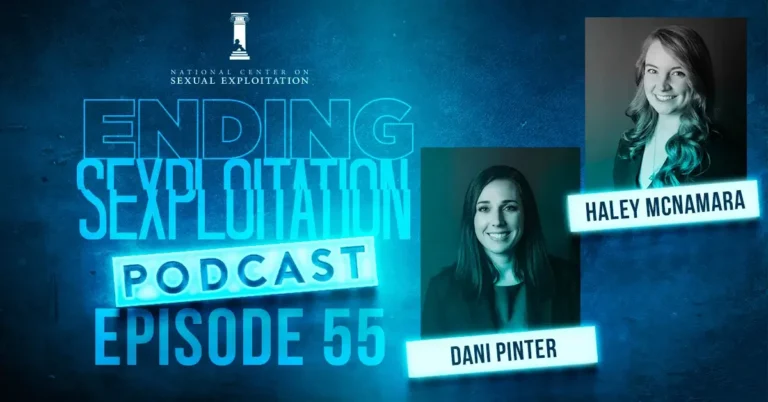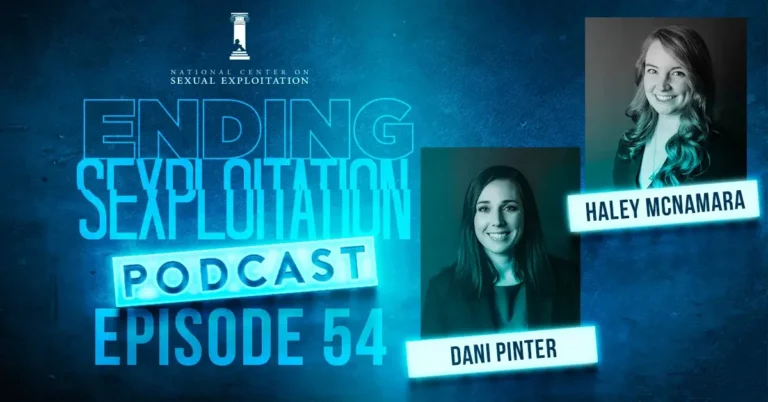Episode 49: Dr. Stephany Powell joins the podcast to share her insights on how implicit bias can hinder our ability to provide trauma-informed care, and how we can overcome this.
Dr. Stephany Powell, Director of Law Enforcement Training and Survivor Services at the National Center on Sexual Exploitation, joins the Ending Sexploitation podcast to discuss the concept of Trauma-Informed Care (TIC) through the lens of implicit bias.
Dr. Powell explains that Trauma-Informed Care entails a paradigm shift from wondering “What’s wrong with you?” to “What happened to you?”. She says, “Once we understand ‘What happened to you’, without bias, then that’s when we can really begin our journey alongside our clients to be able to help them become the person that they want to be.”
Dr. Powell explains that the ability to understand people’s experiences and provide them with Trauma-Informed Care is often hindered by our own implicit biases. Implicit biases are the attitudes or stereotypes we unconsciously hold which affect the way we view and treat other people. They can be based on any number of things, such as a person’s race, age, gender, physical appearance, and more.
Dr. Powell gives the example of how a service provider may view a client as lazy, on account of the fact that the client is overweight. As such, this service provider may be less inclined to help this client find a job. Dr. Powell also explains that organizations in the movement against sexual abuse and exploitation sometimes have implicit biases against boys, since their mission statement is to help exploited women and girls.
Dr. Powell emphasizes that everybody has implicit biases, whether they are aware of it or not. Implicit biases are different from explicit biases in that they are unconsciously held and they can even be in opposition to our declared beliefs. As such, they can be particularly insidious. The good news is that these biases can be gradually unlearned. However, in order for this to happen we first have to recognize what our implicit biases are and how they are affecting our attitudes and behaviors.
Tune into this episode to learn more!
***
SUBSCRIBE to the Ending Sexploitation podcast. It’s available on iTunes on Spotify on iHeart Radio and there is also a full video version on YouTube.
Watch the Full Episode here:



